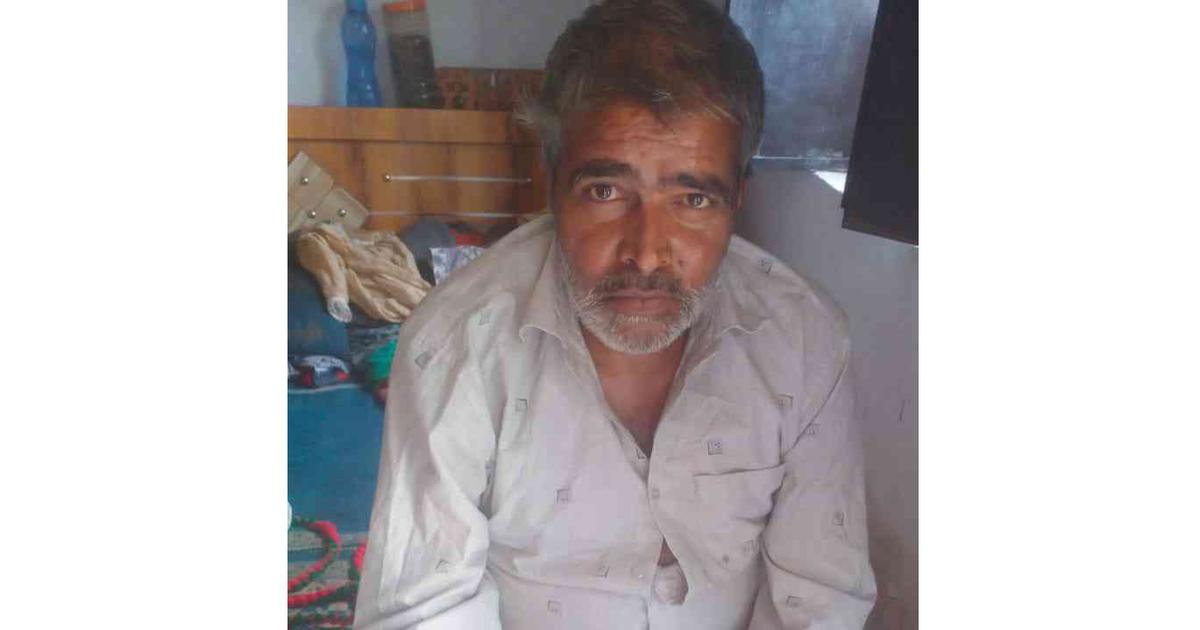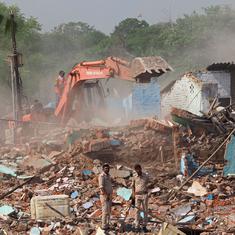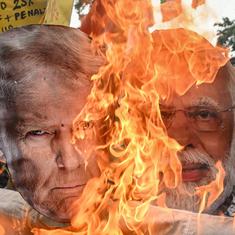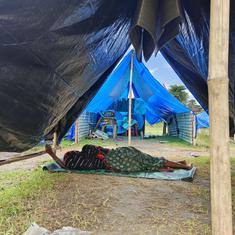Detained on suspicion of being Bangladeshi, Gujarat man reunited with family after 100 days
The family had feared that Liyakat Ali may have been sent to Bangladesh amid a wave of deportations by Indian authorities.

More than 100 days after he was picked up by the Ahmedabad Police on suspicion of being an undocumented Bangladeshi migrant, 51-year-old Liyakat Ali was reunited with his family on Tuesday.
His family had filed a habeas corpus petition in May in the Gujarat High Court, which was dismissed. A habeas corpus is a petition seeking a court’s directive ordering the authorities to bring a person before it to verify if they have been detained.
The family was in the process of approaching the Supreme Court as they feared that Liyakat Ali – an Indian who has lived in Ahmedabad for two decades – may have been forced into Bangladesh amid a wave of deportations by Indian authorities.
“We got a phone call from the police at 2 pm on August 5,” Muzaffarali Shaikh, Liyakat Ali’s brother, told Scroll on Thursday. “They said my brother had been found living under a bridge.”
Liyakat Ali was found around five km from the police station where he had been detained, living with other homeless persons and surviving on food donated by charitable organisations.
The search for Liyakat Ali
A native of Krishnapur village in Uttar Pradesh’s Barabanki district, Liyakat Ali had moved to Ahmedabad about 20 years ago to live with his brother. Liyakat Ali suffers from an undiagnosed mental illness and is unemployed.
The family lived in the Chandola Talav slum, where the Ahmedabad Municipal Corporation demolished about 2,000 homes in April during an anti-encroachment drive. Shaikh’s house was among those razed.
On April 26, four days after the Pahalgam terror attack in Jammu and Kashmir, the police reached the settlement and started rounding up residents in the early hours.
Liyakat Ali and his family were ordered out of their home and made to wait in a nearby open ground.
According to Liyakat Ali’s nephew Akbar Ali, they were made to sit there until 8.30 am before being asked to walk around 3 km to the Behrampura Police Station.
From there, the detainees were taken 2 km away to the crime branch office in Gayakwad Haveli. The men were divided into groups and shifted to other police stations.
Akbar Ali last saw his uncle at the police station in Gayakwad Haveli. He and his younger brother were shifted to the Juhapura Police Station and released the next day after showing proof of identity.
Shaikh said that since Liyakat Ali mostly kept to himself and struggled to communicate, they feared that he may have been deported to Bangladesh because of his inability to prove his identity.
On May 8, as Scroll had reported, about 78 undocumented migrants from Bangladesh, all detained in Ahmedabad, were allegedly flown out of India in a military aircraft and “pushed” across the water into Bangladesh, a police report in Bangladesh’s Satkhira town claimed.
After Liyakat Ali returned home on August 5, he told his brother: “They kept me in the police station for six days, gave me food and water. Then they released me.”
He had no documents to prove his citizenship and could not recall his brother’s phone number.
The family, meanwhile, had continued visiting police stations in search of him.
Detention illegal, says lawyer
On May 5, Shaikh filed a habeas corpus petition in the Gujarat High Court, seeking information on Liyakat Ali’s whereabouts.
In response, the police submitted security camera footage from May 1, showing a man walking out of the crime branch office in Gayakwad Haveli. They claimed the man was Liyakat Ali. Based on this, the court dismissed Shaikh’s petition.
After his release, Liyakat Ali had wandered the city until he settled under a flyover.
A few days ago, residents of Chandola Talav spotted him and alerted the police.
Advocate Aum Kotwal, who filed the habeas corpus petition on the family’s behalf, said that Liyakat Ali’s detention was illegal.
“The police should have produced him in front of a magistrate within 24 hours,” he told Scroll. “The magistrate would have referred him to a hospital for medical opinion on his mental health. He could have been put on treatment and he would have been in a position to tell his address.”
“But the police simply kept him at the station for six days,” Kotwal added.
Shaikh told Scroll that his family had moved to another locality after the municipal corporation demolished their home in Chandola Talav.
“For my brother, locating us would have been difficult,” he said. “But had the police followed protocol in detaining him, he would have been found much earlier.”
Liyakat Ali has no visible injuries.
According to the family, the police allowed him to leave even though he had no documents to prove his identity. “But for three months he had to lead a homeless life,” Shaikh said.
The family, however, does not plan to pursue legal action.
“He is back,” Shaikh said. “That is all that matters.”









